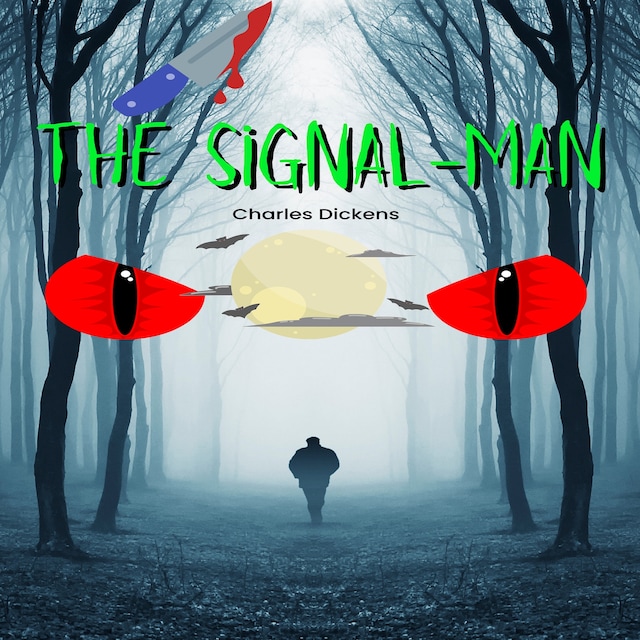
The Signal-Man
Om bogen
The Signal-Man is a first-person horror/mystery story by Charles Dickens, first published as part of the Mugby Junction collection in the 1866 Christmas edition of All the Year Round.
The railway signal-man of the title tells the narrator of an apparition that has been haunting him. Each spectral appearance precedes a tragic event on the railway on which the signalman works. The signalman's work is at a signal-box in a deep cutting near a tunnel entrance on a lonely stretch of the railway line, and he controls the movements of passing trains. When there is danger, his fellow signalmen alert him by telegraph and alarms. Three times, he receives phantom warnings of danger when his bell rings in a fashion that only he can hear. Each warning is followed by the appearance of the spectre, and then by a terrible accident.
Plot summary:
The story begins with the narrator calling "Halloa! Below there!" into a railway cutting. The signalman standing on the railway below does not look up, as the narrator expects, but rather turns about and stares into the railway tunnel that is his responsibility to monitor. The narrator calls down again and asks permission to descend. The signalman seems reluctant.
The railway hole is a cold, gloomy, and lonely place.
The signalman still seems to be in fear of the narrator, who tries to put him at ease. The signalman feels that he had seen the narrator before, but the narrator assures him that this is impossible. Reassured, the signalman welcomes the newcomer into his little cabin, and the two men speak of the signalman's work. His labour consists of a dull monotonous routine, but the signalman feels he deserves nothing better, as he wasted his academic opportunities when he was young, although he has been spending his time during his shifts teaching himself mathematics and learning a foreign language (albeit with questionable pronunciation).
The narrator describes that the signalman seems like a dutiful employee at all times, except when he twice looks at his signal bell when it is not ringing. There seems to be something troubling the signalman, but he will not speak of it. Before the narrator leaves, the signalman asks of him not to call for him when he's back on the top of the hill or when he sees him the following day.


